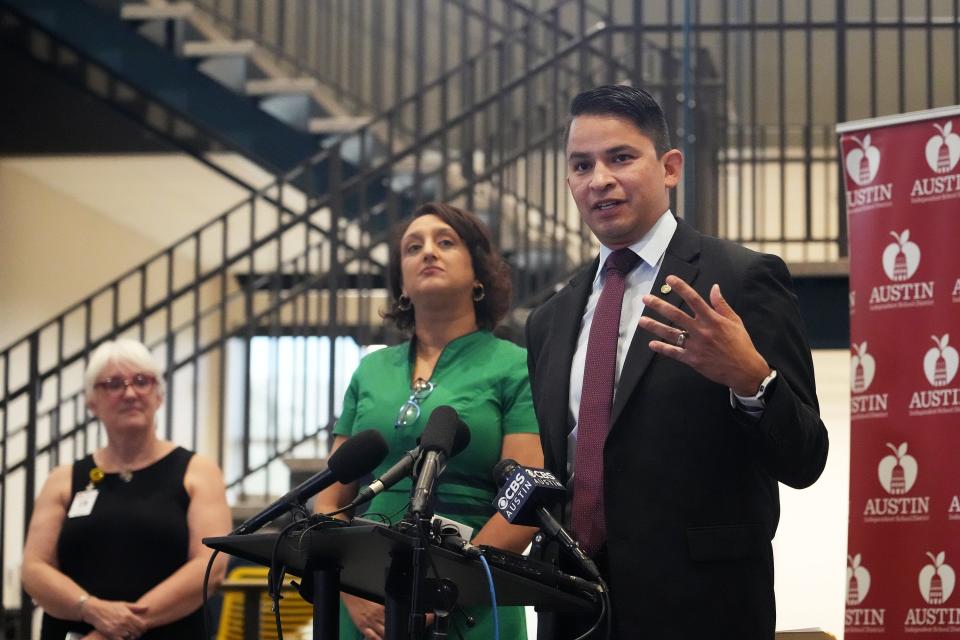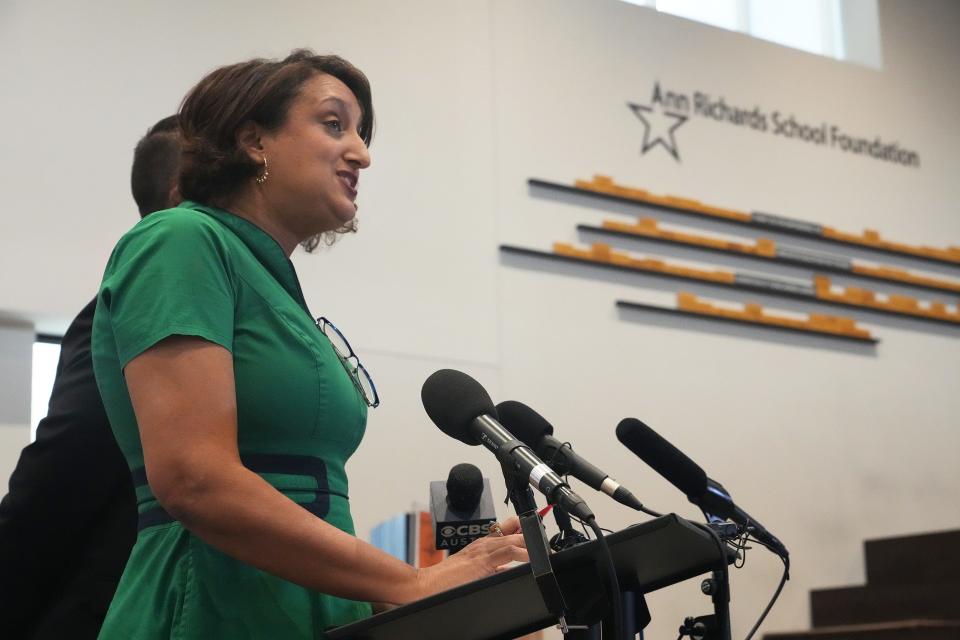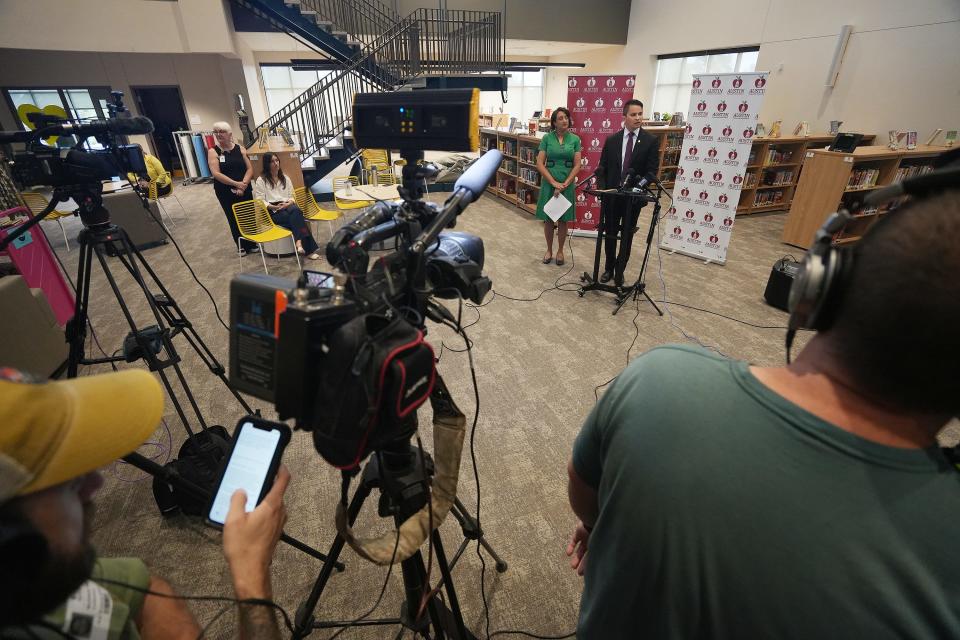TEA proposes aggressive timeline for AISD to get special education evaluations in order
Under a proposal by the Texas Education Agency, the Austin school district would need to come under state monitoring and reporting requirements through 2025 to avoid having a state-appointed conservator placed over its troubled special education department.
As per the proposal, the district would need to clear all its backlogged special education evaluations by Jan. 31; strengthen its data systems; and have its staff and board members go through significant training, among other things.
District officials say they’ve made significant progress on chipping away at its yearslong special education evaluations backlog, but have more work to do.
The proposed agreement says the TEA would not place a conservator over the district if it fulfills a list of required actions. However, a TEA-appointed monitor would oversee the district’s progress and if Austin doesn’t meet its deadlines, the state could appoint a conservator — a person or group of people who can direct school district action in a specific area, like special education. Unlike in the district takeover going on in Houston, Austin's school board and superintendent remain in place under a conservator.
The TEA has said it can’t comment on the proposal while a review is ongoing.

The TEA's proposal shows the district is moving in the right direction, interim Superintendent Matias Segura said in a news conference Wednesday.
“We appreciate the TEA acknowledging our progress toward implementation of sustainable and transformative improvements around special education,” Segura said. “We know the breadth, depth and seriousness of the challenges facing our special education programs.”
Austin district's requirements under TEA plan
The proposal puts the district on a strict timeline for completing its unresolved evaluations, which have plagued Austin schools for years.
By Oct. 31, the district would have to complete the 111 evaluations from before the 2022-23 school year and come up with a plan for compensatory services for those students.
By Jan. 31, the district would have to complete all other 1,159 outstanding evaluations and provide compensatory services for some of those students.
Once a parent requests a special education evaluation for their child, federal and state laws require a district to complete the process within a specified timeline. If the school doesn’t, the child is entitled to extra help to make up for the time they didn’t get services.

The Austin district would also need to submit a special education strategic plan to the TEA by April 30 and hire a contractor to complete an audit of its processes, according to the proposal.
The proposal also includes detailed and extensive training requirements for school board members and district staff extending though 2025.
The district will also have to update data monitoring systems, provide monthly progress reports to the TEA and develop a parent engagement plan that includes information sessions and an advisory group.
More: Special education proposal in the works could keep state conservator out of Austin ISD
Ongoing progress
Austin district officials have said they’ve made notable progress on addressing its special education issues, including some of the measures TEA asked for.
As part of its work to tackle the outstanding backlog, the district has already instituted some of the TEA's proposed requirements.
The district hired a staff member to coordinate with the public on special education complaints, tripled its evaluation staff from 22 to 74 employees and added 50 special education staff members.

Over the summer, staff members at each campus underwent two days of special education-specific training and churned away at evaluations, completing 30% more requests for special education services than in the previous summer, according to officials.
School board President Arati Singh pointed out during a news conference Wednesday that the district created a special education advisory committee this year and increased its special education spending by $30.2 million for a total $156 million.
“A stronger AISD must be an inclusive AISD,” Singh said.
Segura, the interim superintendent, emphasized that bringing special education services up to standard is the district’s top priority.
“There is complete buy-in from this organization to address the needs of our students,” Segura said. “We’ve been relentless in the pursuit. I think we’ve seen actions from this administration the last couple of weeks that prove it. Now, I think we have basically an acknowledgement from the state we’re moving in the right direction.”
How Austin schools got here
The TEA told the district on March 31 that its investigators had recommended a conservator to be appointed over its special education department because of the evaluations backlog. In April, the Austin district asked the TEA to forgo appointing a conservator and instead place a monitor, which would report back to the state but wouldn’t mandate district action.
The district is also facing a 2021 lawsuit from Disability Rights Texas, a disability rights advocacy group, over the evaluations backlog and claims the district failed to provide compensatory services for students who had delayed evaluations.
The district has until Sept. 29 to accept or reject the TEA’s plan. The school board will likely take a vote on the proposal during its scheduled Sept. 21 meeting, Singh said Wednesday.
More information about the district’s special education processes can be found at austinisd.org/special-education.
This article originally appeared on Austin American-Statesman: TEA asks Austin schools to fix special education backlog by Jan. 31

